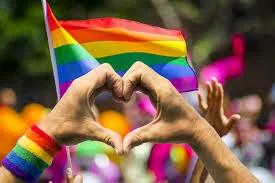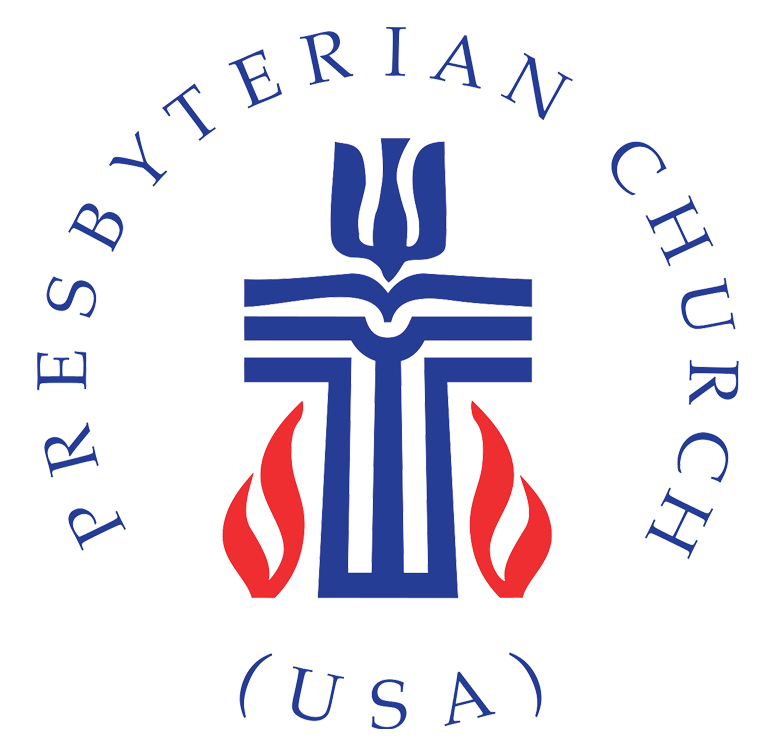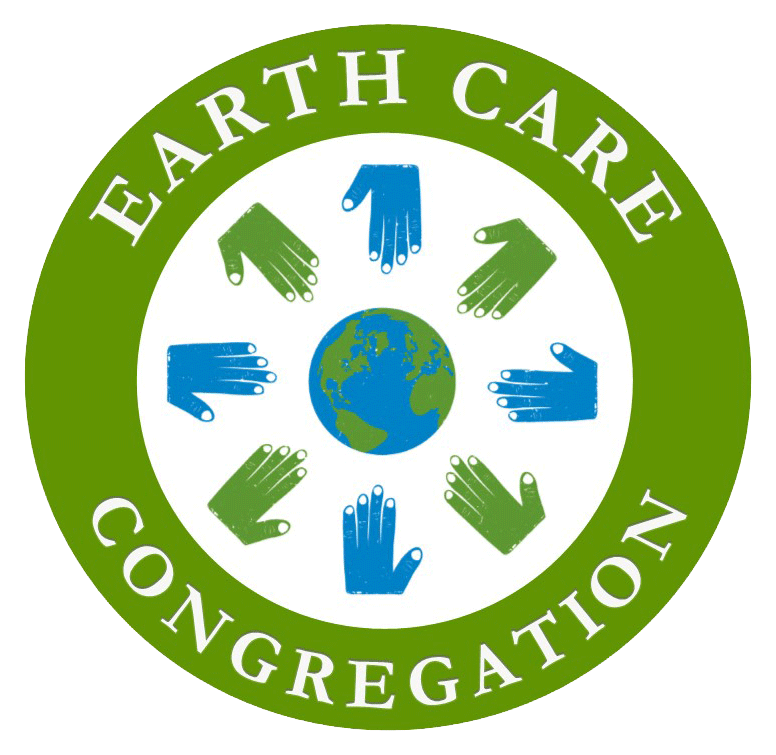In Honor of Michael, Lisa, Alan, Brian, Diane, Beth, Kelly, Rose, Jenny, Patrick, Fred, Ed … & countless others who have taught me & those around us, “Just BE the Church”
Date: June 30, 2019
Scriptures: Genesis 3:1-13 | Galatians 3:23-29 | Mark 12:38-42
I have one word of job advice for my son, Andrew, who is present with us this one Sunday before we embark on a two-week excursion together …
Son: Always look for a job from a job. In other words: If at all possible, don’t leave a job without another opportunity in-hand.
Not that I have always followed my own advice. For in 1998, I tendered my resignation from my first pastorate … without a new pastorate in-hand.
For after serving the minimum of three years I had agreed to serve at my first congregational call in rural Oklahoma: I was done.
And so it was that I found myself sitting in my newly-emptied pastor’s office conducting a phone interview with a pastor nominating committee of a Presbyterian church in far away Michigan. A church in Ann Arbor that in the 1970s had proclaimed itself one of the first More Light churches. That means it was one of roughly 100 of over 11,000 Presbyterian congregations by 1998 that would ordain and install ruling elders to serve on its church board, the Session, regardless of their sexual orientation or gender transition. One of 100 – of over 11,000 congregations. Talk about the 1%! The holy remnant, more like it.
Sitting in my vacant office – a physical reminder I was heading out my Oklahoma pastorate door – the phone interview with this congregation of the More Light 1% seemed to be transpiring well. Until one nominating committee member – an out gay young man with a long-term partner – put to me this question:
“Would you be willing to officiate a wedding for a same-gender couple at our church?”
What to say? I paused. I sensed the answer he wanted. And I knew the answer that our denomination – the Presbyterian Church (USA) – was giving in 1998: No way, Jose. Not a chance. Same-gender weddings were not, after all, legal anywhere in our land at that time. And as far as our denomination was concerned, they were verboten in the name of God and in the presence of the body of Christ.
But there the question before me: “Would you be willing to officiate a wedding for a same-gender couple at our church?” I could have answered that I would consult with the church Session about this first. That would have been prudent. I could have answered that I would abide by the denomination’s proscription. Faithful to my ordination certificate just removed from my office wall.
I don’t know what got in me. But I found myself uttering this response:
“Sometimes, you’ve got to be a Presbyterian,” I said. “And sometimes, you’ve got to be a Christian.”
Or as my lesbian preacher friend Lisa Larges – who battled for her own ordination for two decades – counseled from the pulpit in that era: “Just Be the Church.”
“Sometimes, you’ve got to be a Presbyterian. And sometimes, you’ve got to be a Christian.” To just Be the Church.
I have never regretted my response.
Just Be the Church. And three years later, when I officiated at that young man Alan’s wedding to Brian – and two years later, at the wedding of two women named Rose and Kelly – both in the presence of the body of Christ at Northside Presbyterian Church in Ann Arbor: I knew, and we knew, that we were just being the Church.
I knew, and we knew, that although we were out-of-Presbyterian-order in our witness to the loving, lifelong commitment vows of a same-gender couple, we were being faithful to these words elsewhere in our denomination’s Book of Order: of undertaking mission “even at the risk of (the church) losing its own life … trusting in God alone as the author and giver of life.”
Even at the risk … of losing one’s life. That takes Pride. God-given Pride. Pride, as our Genesis scripture attests, that goeth before The Fall.
Pride that goeth before The Fall. For as the story of the proverbial Fall from grace we heard this morning makes clear: Our “original sin” was not only the pretension of becoming like God – an issue of false pride. Our “original sin” could also be the obverse of that coin: that Eve let herself be framed. That Eve and Adam both, through their lack of pride in who and whose God created them to be, allowed the serpent to do the thinking for them.
For while self-pride serves as the “original sin” to most white male North Atlantic straight theologians who dominated the world of the church universal in the twentieth century, we need now take another look. Because in finally opening the doors to the perspectives of persons of color, those who are female, those who are non-North Atlantic, those who are lesbian, gay, bisexual, transgender, queer, questioning, intersex people of faith: we can understand the parable of The Fall today in another way. That The Fall is about self-abnegation as much as it is about self-pride. It’s about being passive as well as being aggressive.
And both passive self-abnegation and aggressive self-pride stand in the way of all of us affirming our proper God-given Pride in Whose We Are. Especially when we let someone else do the thinking for us. Steal from us our God-given Pride. Pride that goeth before our fall.
God-given Pride restored – in our redemption through Jesus, the Christ.
“Which commandment is the first of all?” a scribe challenges Jesus. The answer seems a simple one. “Love God with all your heart, soul, strength and mind.” And that’s what the scribe expected Jesus to answer – so he could then say, “Well, as you know, we scribes are the keepers of that central belief – the definers of that Lord. And so based on how we define the Lord you and I love, we say to you now: you can relate to these righteous persons in our midst, and stop running around with those sinners, those Gentiles, those Samaritans.”
It was a classic set-up of those in power using beliefs to define our relationships. Love God is the first commandment of all? Yes, indeed – and we, the arbiters of that belief, we’ll build the border wall on the relationships from there.
But the scribe does not say that – because Jesus does not stop there. Jesus continues to speak – accessing a much-overlooked tenet of their Law: “The second (commandment) is this, ‘You shall love your neighbor as yourself.’” And he concludes, “There is no other commandment greater than these.”
Saying this, Jesus has turned this scribe’s world upside-down. For to Jesus, our beliefs (what we think we know about) are not to shape our relationships (who we should know). To Jesus, the risk-taking of relationships (who we could know) are to shape our beliefs.
End of debate. End of exclusion. End of belief-led relationships: “Love God – and we, the religious authorities, will define who God includes.” End of religion being a creed-centered, here’s our border wall, risk-free enterprise.
And the scribe knows it. “You are right, Teacher.” He says. “You are right.”
“You shall love your neighbor as yourself.” Our relationships – to God, to neighbor, to self, to God’s creation – are to shape our beliefs. Not vice versa.
And included in that new epistemology of relationships shaping our beliefs is this: the primacy of coming to know our lesbian, gay, transgender, bisexual, queer and intersex neighbors. Versus moving among one’s own heterosexual kind and debating what we think we know about “them”.
Knowing versus knowing about. It requires a change of scenery. A change of social location. A change of walking the talk – so that the talk can walk itself. How many of you have spoken and sought the viewpoints of an out LGBT person this past week, for example? … or a person from a different land – of a different creed – of a person in prison, or without a home? Where have you changed your social location and sought their views, without trying to “help” them?
Knowing another, first – versus settling for knowing about. “Sometimes, you’ve got to be a Presbyterian” – know about something … “and sometimes, you’ve got to be a Christian” – know someone that your creedal or other contextual cocoon will not otherwise allow.
Well, little did I know how I would be called to fulfill those words I offered to that pastor nominating committee from my empty pastor’s office. Little did I know that, when that little church on an Ann Arbor hill called me to be their pastor, we would find ourselves going about being Christians based on our relationships – soon, one-fourth of that Ann Arbor congregation became L,G, B & T – when being Presbyterian believers would ordinarily have obscured our way.
And in a few short years, my very ordination was on the line. Complaints were filed against me by a mysterious accuser in the larger denomination – someone to this day I have never met – for participating in ordinations of LGBT elders and officiating at those weddings I mentioned. And for over a year, while I was being investigated by a presbytery judicial committee, I was not allowed to serve in the presbytery and my resume on file was rendered inactive.
I felt a bit at the time like the Major League baseball umpire of old, Bill Klem. When another future Hall of Famer, Giants’ Manager John McGraw, stormed away from a call Klem had just made by saying, “I’ll have your job for this,” Klem shot back, “If you can have my job for that, then I don’t want it!”
And as I sat Klem-like in a presbytery meeting during that time of suspension, it dawned on me: I can be a presbytery member – but I cannot serve in this presbytery’s leadership in any way. Not unlike my lesbian, gay, bisexual and transgender sisters and brothers. Hmm …
What a powerful revelation, when we stand with the voiceless long enough and deep enough, that one day we might discover: we have lost our voice with them. That we may have lost our voice, and yet with our stand we have found our Pride redeemed – again, as our Book of Order puts it: “even at the risk of (our church) losing its own life … trusting in God alone as the author and giver of life.”
Today, we are hearing more and more about our transgender sisters and brothers – and gender fluidity as a whole. Just yesterday, 100 miles down the road in my hometown of Richmond, VA, Jess Cook became the first openly non-binary person in the Presbyterian Church (USA) to be ordained as minister of Word and sacrament. Jess is “non-binary”, you see, because she does not self-identify as either male or female. She is proudly queer. What qualifies her to be ordained is what qualifies me to be ordained: her call to serve as confirmed by the members of her presbytery of care.
The Apostle Paul reminds the Galatians – and reminds us today: “In Christ you are all children of God through faith … There is no longer Jew or Greek, there is no longer slave or free, there is no longer male and female, for all of you are one in Christ Jesus.” Because Paul knew – as I hope we do – that all the power of identification religious institutions superimpose onto individuals is transformed by our God-given Pride to the self-identification that then joins us as one in Christ.
Self-identification. Let us not understate its power. Lest we diminish the power of our oneness in Christ that our sanctuary of self-identification empowers.
In 2005, a friend at our Ann Arbor church asked to meet me in my study. “I want to share with you, Chuck,” our friend in Christ said, “why I am not willing to become a church member at this time. I am in the process of changing genders – and I do not want to join until I can be who I am to be.”
Note that I have not stated the gender of our friend. I knew that this individual had been presenting himself to myself and to the church as Dan*. “Dan” I responded, “let me understand. Are you changing from male to female – or are in the process of changing female to male?”
Now, I don’t recall responding to Dan in that way. On the other hand, Dan – now Jenny – has reminded me of what I said, time and time again.
For by my allowing our friend the safe space to self-identify – by asking questions, without assuming – was apparently the greatest gift I could give her at that time. As we at Northside Presbyterian gifted three other transgender friends who joined our number – two who would serve on Session, and one, our friend Jenny, who would attend seminary.
The power – the Pride – of self-identification. It cannot be overstated. Respect that, and it leads us all to the power – the Pride – of self-identifying as a Christian.
And not many of us, I imagine, has self-identified as such recently.
Well, let us do so. Let us take that risk. Let us learn to shamelessly self-identify as a Christian.
Let us learn that from those all around us who have learned to shamelessly self-identify as the person they understand God intends her or him or they to be.
Let us learn from former active members Patrick and Fred – who walked in our door one day in 2009 with their twin children, Nicole and Paul. Their presence and service among us provided the immediate impetus for our Statement of Welcome in our bulletin. What a loss for us when they moved to California in 2012.
And let us learn from the witness of dear Ed Haralson. For three years perhaps the most faithful presence among us, and among our ministry – taken from us too soon nearly two years ago by a terminal illness. A man who said he came to terms with being gay as a Christian when he heard the voice of God speak to him softly one day: “There is no reason you cannot be who you are.” Edmund Haralson: Presente!
“There is no reason you cannot be who you are.” God’s Spirit whispered that to Ed – and whispers to us, still. That we might claim our God-given Pride not just of who we are. But ultimately our Pride in whose we are.
Whose we are. For our God-given Pride, as Jesus’ Great Commandment teaches us, is relational – which then shapes our beliefs. God-given Pride that says to our own personal serpent, hey: I can do the thinking for myself.
The God-given Pride of whose we are – that begins with each of us coming home to our self-identity of who we are. And a church that allows that transformation – on whatever level – to happen.
Let us celebrate that Pride. Far beyond sexual orientation and gender identification.
Let us celebrate it for all – with all – whose last name ultimately is also ours: Child of God.
*Name changed.




